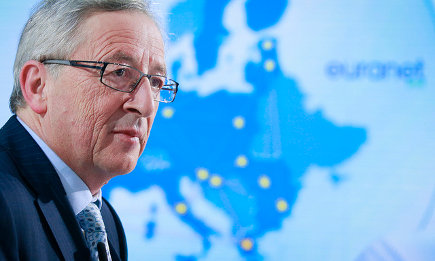A fight for Juncker

The European Parliament has a special privilege it has loaned from the Senate in Washington DC: nomination hearings with the new members of the Commission before the vote on their final positions. Sometimes these can get quite heated. Digital Europe czarina Neelie Kroes had to appear twice before the relevant committee before this was convinced she was not a total digi-illiterate. Italian candidate Buttiglione had to withdraw in 2004 because of his conservative moral views.
Clash between research and industry
Now two aspiring EU Commissioners have to tread carefully not to fall foul of Parliament. The Portugese R&D and Innovation candidate, Carlos Moedas, has a fine reputation and full support of i.a. LERU. But his authority has been lessened by making the Polish vice-president for Economic Affairs his ‘boss’. This leads to critical questions of both Moedas and Juncker.
Will Horizon 2020 and the Flagship Projects, such as Graphene, be subordinated to the short term interest of industry and economy? Will the fundamental research projects be put on a backburner, instead of a common European priority within the ERA? Moedas will have to convince the EP of his power to counter the Polish powerlady, before he will receive a ‘go’.
Controversial Hungarian
Much worse could be the destiny of the Hungarian Education-commissioner. As the righthand man of prime minister Orban, Tibor Navracsicsis is seen as an pro-Putin man and a authoritarian critic of free speech, civil society and academic freedom. It is expected that a liberal-left-green alliance in the EP will try to block him. The largest party, Juncker and Merkels Christian Democrats of the EPP, will be divided on this.
Here the anti-Putin forces from Poland, the Baltics, Scandinavia and the Netherlands will try to dictate a distancing from this unloved candidate. The Russophile forces, led by Berlusconi’s party, have been weakened in the recent EP-elections and this could lose the Hungarian his support within his ‘own’ European party family.
Meest Gelezen
Vrouwen houden universiteit draaiende, maar krijgen daarvoor geen waardering
Wederom intimidatie van journalisten door universiteit, nu in Delft
Hbo-docent wil wel rolmodel zijn, maar niet eigen moreel kompas opdringen
‘Burgerschapsonderwijs moet ook verplicht worden in hbo en wo’
Raad van State: laat taaltoets nog niet gelden voor hbo-opleidingen

